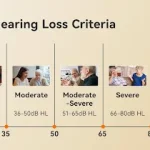The importance of emotional and psychological well-being has been acknowledged by more people in recent years, making mental health a hot topic of discussion. As a densely populated borough with diverse communities, Brooklyn provides a wide range of mental health therapy services, reflecting the varied needs and experiences of its residents. Seeking mental health therapy services is essential, not only for those dealing with specific diagnoses but also for anyone striving to achieve a better quality of life. Here, we discuss the benefits of accessing mental health therapy services in Brooklyn and why they are essential for individuals across all walks of life.
ALSO READ: How Cymbalta Ruined My Life: Essential Facts
Addressing Mental Health Stigma
The stigma attached to obtaining Brooklyn mental health care is one of the main obstacles. Many individuals still feel hesitant to pursue therapy, fearing judgment or misunderstanding. However, mental health therapy in Brooklyn is becoming more widely accepted, and numerous community-driven initiatives aim to normalize seeking help. Therapy is increasingly seen as a proactive approach to managing life’s challenges, much like seeing a doctor for physical health concerns. By seeking therapy, individuals not only receive support but also become part of a movement that challenges harmful stigmas and promotes open conversations around mental health.
Access To Specialized Care
Brooklyn is home to a diverse population, and this diversity is reflected in its mental health services. From culturally sensitive therapists to specialists in trauma, addiction, family dynamics, and LGBTQ+ issues, Brooklyn offers specialized care that caters to different needs and backgrounds. People who have access to specialist therapy services can locate a therapist who is aware of their particular difficulties and who can provide experiences-specific insights and assistance. For example, a therapist with experience in immigrant mental health can better support someone facing acculturation stress or family separation issues. Treatment results can be greatly impacted by finding a therapist who truly knows one’s history and experiences.
Managing Stress And Anxiety In Urban Life
Living in a bustling urban area like Brooklyn brings excitement and opportunity but can also lead to stress and anxiety. Navigating crowded spaces, managing demanding work schedules, and balancing personal responsibilities can be overwhelming. Mental health therapy can equip individuals with strategies to cope with urban stressors, from mindfulness techniques to cognitive-behavioral approaches that help manage anxiety and negative thinking patterns. Frequent therapy sessions might offer a secure environment for processing these difficulties and building resilience. As a result, individuals often find themselves better equipped to handle daily pressures and maintain a healthy work-life balance.
Preventing More Severe Mental Health Issues
Early intervention is crucial in Manhattan mental health. Seeking therapy before a situation escalates can prevent more severe mental health challenges, such as chronic depression or panic disorders, from developing. Many Brooklyn residents may initially seek therapy for manageable issues like stress or relationship concerns, only to uncover deeper, unresolved issues that, if left untreated, could worsen over time. Regular therapy provides an opportunity for early identification and intervention, offering coping mechanisms and strategies that prevent minor issues from becoming debilitating. By seeking help early, individuals can safeguard their mental well-being and avoid the need for more intensive interventions later on.
Strengthening Relationships And Communication Skills
Therapy can have a significant effect on relationships in addition to managing a person’s mental health. Many people struggle with communication issues, trust, or unresolved conflicts that strain personal and professional relationships. Therapy offers a structured setting to develop communication skills, manage conflicts, and foster healthier connections with others. For couples, families, or even friends, therapy can be a space to work through differences, build empathy, and strengthen bonds. By addressing relational issues with a therapist, individuals can create more meaningful connections, which is invaluable in an interconnected community like Brooklyn.
Building Resilience And Personal Growth
Beyond managing immediate challenges, therapy fosters long-term personal growth. Through self-reflection, individuals can gain deeper insight into their behaviors, motivations, and patterns. A therapist can help someone explore their goals, values, and areas for improvement, guiding them toward becoming the best version of themselves. This journey of self-discovery is often empowering and transformative, enabling individuals to approach life with a renewed sense of purpose and resilience. Therapy doesn’t just address problems—it cultivates skills and mindsets that enhance overall life satisfaction.
Choosing The Right Therapy Service In Brooklyn
Finding the right mental health therapy service in Brooklyn is an essential first step in this journey. With many options, it can be helpful to research therapists or clinics, read reviews, and even schedule introductory consultations. Factors like therapy style, location, cost, and therapist background are all considerations when choosing the best fit. Many providers also offer sliding-scale fees or accept insurance, making therapy more accessible to residents.
Conclusion
Seeking mental health therapy services in Brooklyn is a powerful step toward better well-being and quality of life. People can overcome obstacles, manage stress, and create deep connections in their life with the support of therapy. Whether addressing immediate issues or aiming for long-term growth, the benefits of therapy extend far beyond the therapy room. For Brooklyn residents, these services represent an opportunity to lead more balanced, resilient, and fulfilling lives—ultimately contributing to a healthier, more connected community.







